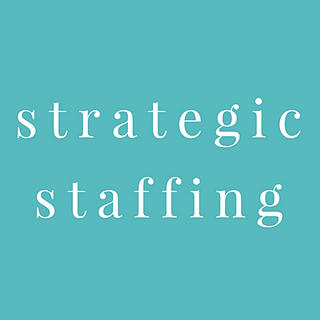Guidance for Finding the Right Support Services
- John Keating, BCC, CPSE
- Aug 18, 2025
- 4 min read
Finding the right disability employment support can be a challenging journey. Whether you are an individual seeking assistance or an employer aiming to create an inclusive workplace, understanding the available resources and how to access them is essential. This guide will walk you through practical steps, key considerations, and useful tips to help you navigate the landscape of disability employment support effectively.
Understanding Disability Employment Support
Disability employment support refers to a range of services and resources designed to help individuals with disabilities find, maintain, and succeed in employment. These supports can include job coaching, workplace accommodations, skills training, and legal guidance. For employers, support might involve training on disability awareness, assistance with compliance, and strategies to foster an inclusive environment.
Types of Disability Employment Support Services
Job Placement Assistance: Helps match job seekers with suitable employers.
Vocational Rehabilitation: Provides training and counseling to improve job readiness.
Workplace Accommodations: Modifications or adjustments to the work environment or job tasks.
Legal and Advocacy Services: Guidance on rights and protections under laws like the Americans with Disabilities Act (ADA).
Ongoing Support: Continuous coaching and mentoring to ensure job retention.
Knowing what type of support you need is the first step. For example, if you require help with resume writing or interview skills, job placement services or vocational rehabilitation might be the best fit.

How to Access Disability Employment Support
Accessing the right support involves research, outreach, and sometimes advocacy. Here are practical steps to help you get started:
Identify Your Needs: Assess your strengths, challenges, and the kind of support that will help you succeed.
Research Local Resources: Many communities have government agencies, nonprofits, and private organizations offering disability employment support.
Contact Vocational Rehabilitation Services: These state-run programs provide a wide range of employment services for people with disabilities.
Explore Online Platforms: Websites and forums can connect you with resources and peer support.
Seek Professional Advice: Sometimes, personalized guidance from experts can make a significant difference. For example, disability employment advice from experienced coaches can help you navigate complex situations.
Tips for Employers Seeking Support Services
Partner with local disability organizations.
Provide training for HR and management on disability inclusion.
Use government incentives and programs designed to support hiring people with disabilities.
Implement clear policies and procedures for accommodations.

What is the most common ADA violation in the workplace?
The Americans with Disabilities Act (ADA) protects employees with disabilities from discrimination and requires employers to provide reasonable accommodations. However, violations still occur frequently. The most common ADA violation in the workplace is failure to provide reasonable accommodations.
Understanding Reasonable Accommodations
Reasonable accommodations are adjustments or modifications that enable an employee with a disability to perform their job duties. Examples include:
Modified work schedules
Assistive technology
Physical changes to the workspace
Job restructuring
Why Do Violations Happen?
Lack of awareness or training among employers
Misunderstanding what constitutes a reasonable accommodation
Concerns about cost or impact on business operations
Failure to engage in an interactive process with the employee
How to Avoid ADA Violations
Educate management and HR staff about ADA requirements.
Establish clear procedures for accommodation requests.
Communicate openly with employees about their needs.
Document all accommodation efforts and decisions.
Employers who proactively address these issues create a more inclusive and legally compliant workplace.

Practical Tips for Choosing the Right Support Service
Selecting the right disability employment support service requires careful consideration. Here are some actionable recommendations:
Check Credentials and Experience: Look for organizations with a proven track record in disability employment.
Ask About Customization: Support should be tailored to individual needs, not one-size-fits-all.
Evaluate Accessibility: Ensure the service location and materials are accessible.
Seek Reviews and Testimonials: Feedback from others can provide insight into service quality.
Consider Cost and Funding: Some services are free or subsidized; others may require payment.
Verify Legal Compliance: Services should adhere to relevant laws and ethical standards.
Questions to Ask Potential Support Providers
What specific services do you offer?
How do you tailor support to individual needs?
Can you provide examples of successful placements?
What is your process for ongoing support?
How do you handle confidentiality and privacy?
Taking the time to ask these questions can help you find a service that truly meets your needs.
Building a Support Network for Long-Term Success
Disability employment support is not just about finding a job; it’s about sustaining a fulfilling career. Building a strong support network can make a significant difference.
Components of a Support Network
Professional Coaches and Counselors: Provide guidance and skill development.
Peer Support Groups: Offer encouragement and shared experiences.
Family and Friends: Emotional support and practical help.
Employers and Coworkers: Inclusive workplace relationships.
Community Resources: Access to training, advocacy, and social services.
Strategies to Strengthen Your Network
Attend workshops and networking events.
Join online forums and social media groups focused on disability employment.
Volunteer or participate in community activities.
Maintain regular communication with your support contacts.
A robust network helps you navigate challenges and seize new opportunities.
Finding the right disability employment support is a journey that requires patience, research, and proactive engagement. By understanding the types of support available, knowing how to access them, avoiding common pitfalls like ADA violations, and building a strong support network, you can create a pathway to meaningful and sustainable employment. Remember, the right support can empower you or your organization to thrive in an inclusive and equitable work environment.





.png)




Comments